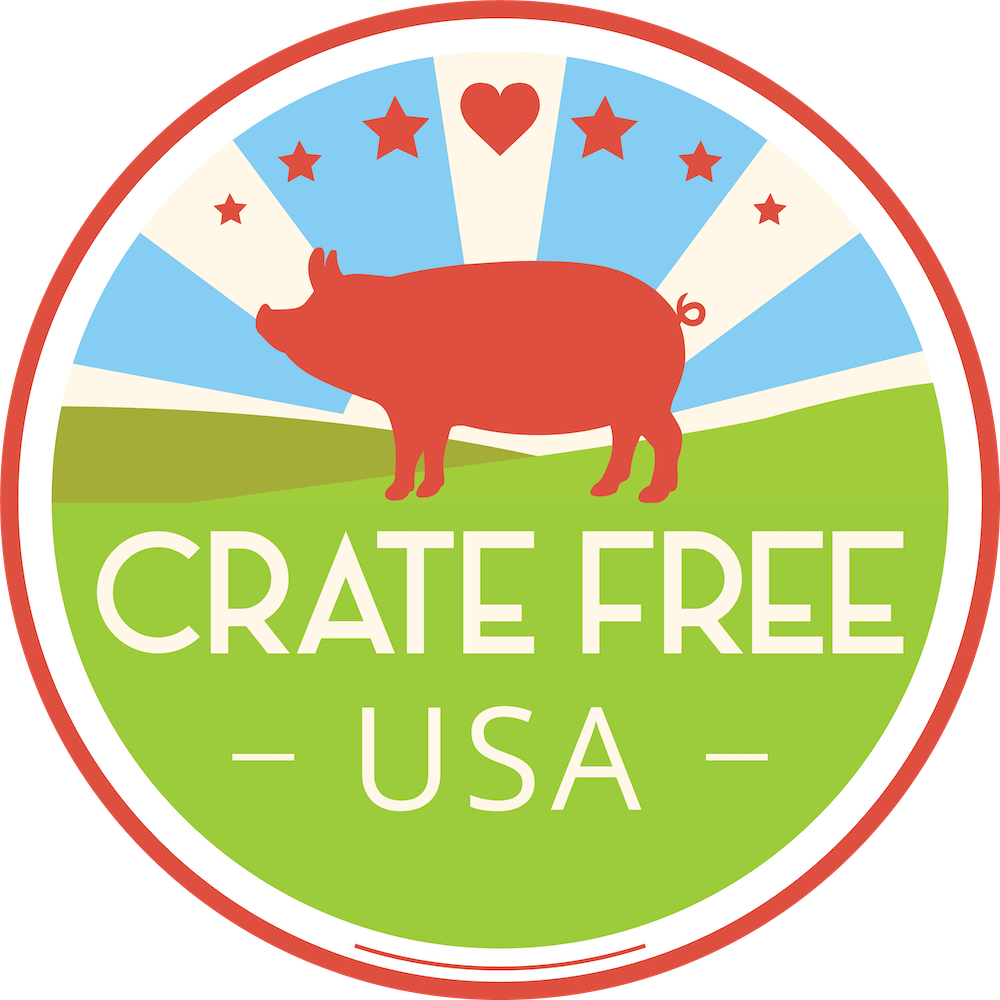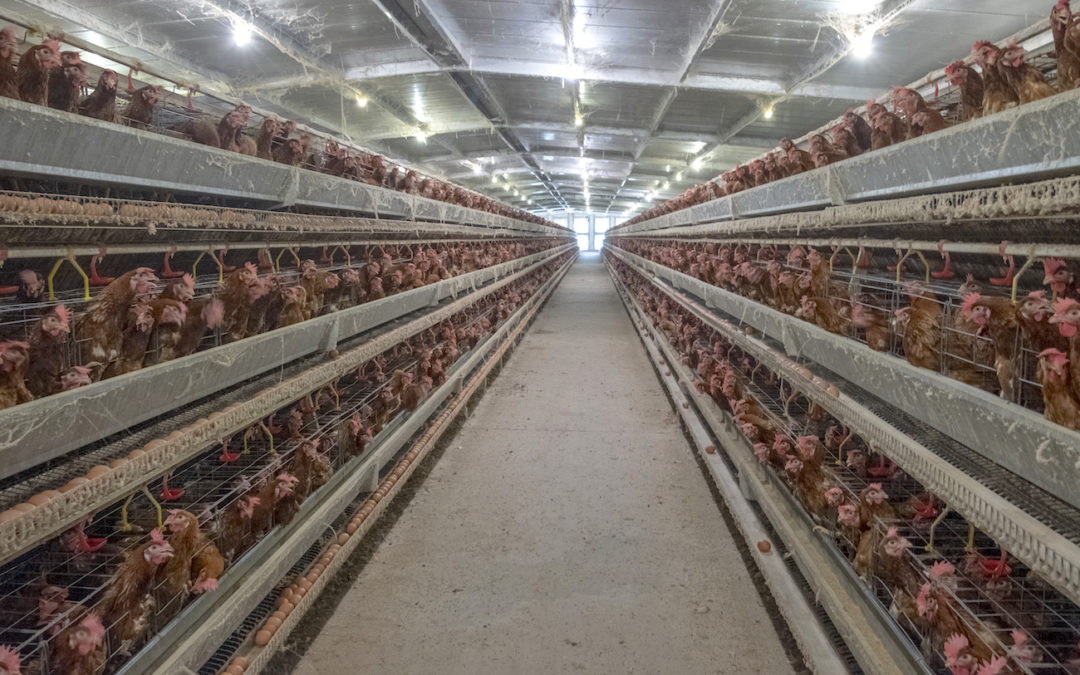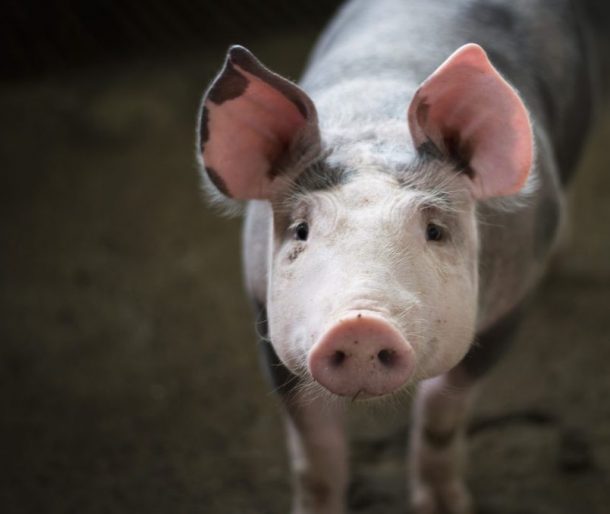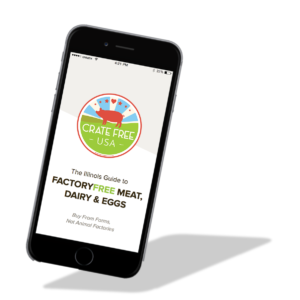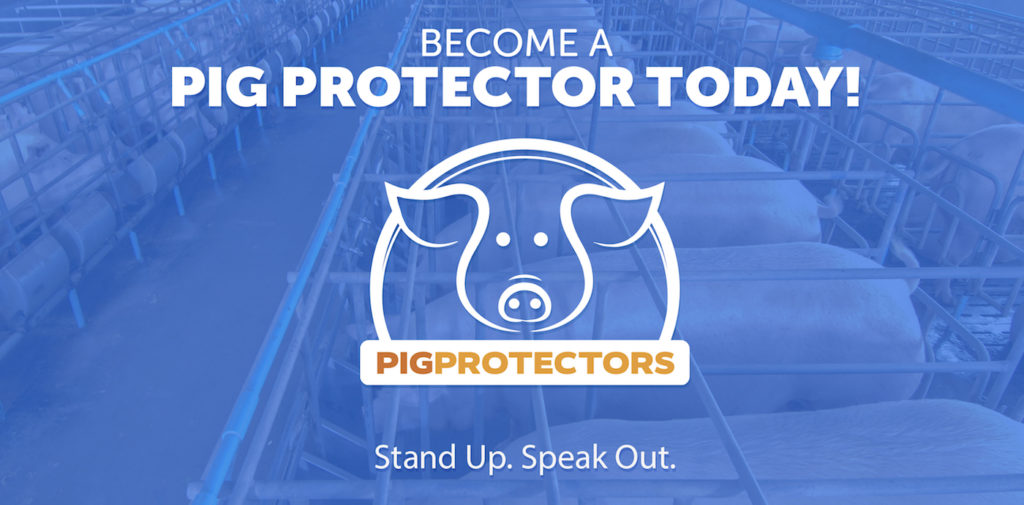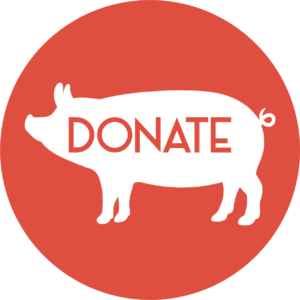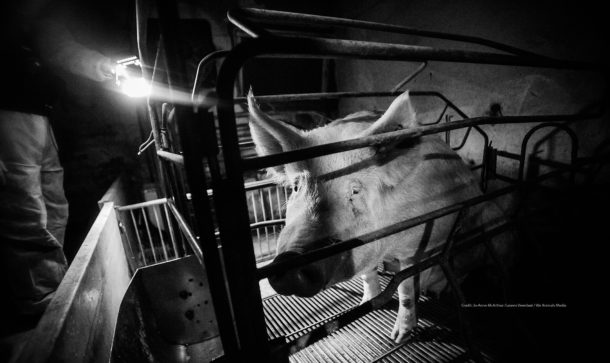While we often think of the United States as a leader in many areas, the way we treat animals used for food is sadly not one of them. The U.S. trails only China in terms of producing poultry, beef, and pork (44.7 million metric tons per year) and importing it ($11.1 billion worth). And yet, we are far from second best when it comes to the treatment of the billions of animals raised and killed to generate these massive numbers.
The United States lags significantly behind other nations in animal welfare, particularly for animals used in food production. Countries in the European Union (EU) and Switzerland have implemented comprehensive laws to improve farmed animal treatment practices, while U.S. policies remain limited and inconsistent.
This disparity stems from economic priorities, political lobbying, and cultural attitudes. Understanding these factors is crucial to bridging the gap.
Animal Welfare Regulations in the U.S.
The U.S. employs a patchwork of federal and state laws to regulate animal welfare. Protections for farmed animals are woefully inadequate.
Federal Protections
The Animal Welfare Act (AWA), established in 1966, governs the treatment of animals used in research, exhibition, and transport. However, it explicitly excludes farmed animals, leaving over 99% of animals in the U.S. outside its scope. This exclusion underscores the lack of national standards for animal agriculture.
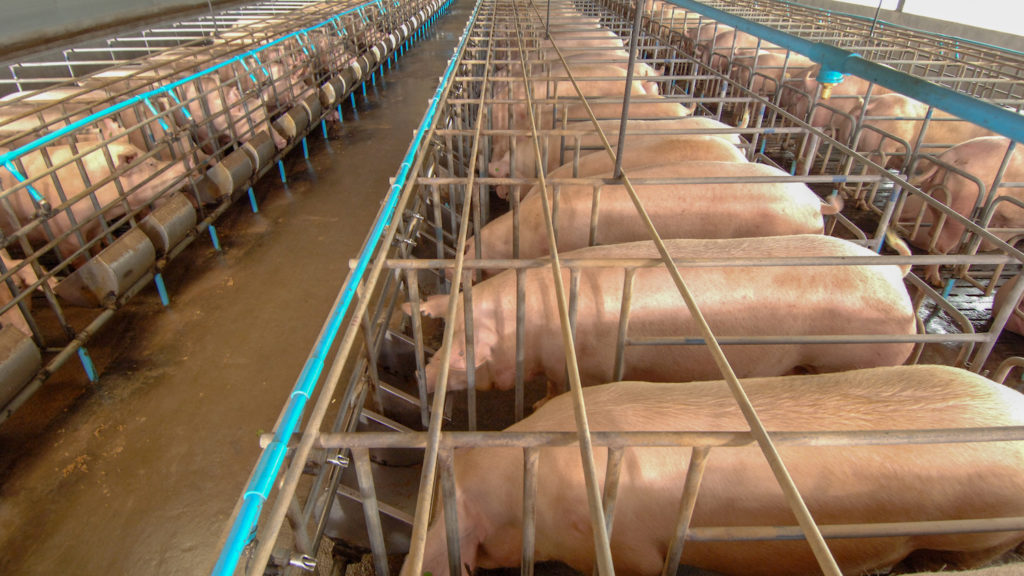
State-Level Progress
Despite the absence of federal protections, some states have taken steps to address extreme confinement practices. According to the an overview of farmed animal confinement laws:
- 15 states have laws restricting or banning the use of cages and crates
- 10 states have enacted measures to restrict or ban the use of cramped, wire cages for egg-laying hens.
- 12 states have passed laws limiting or banning the use of veal crates for calves.
- 11 states have now banned gestation crates.
These state-level initiatives demonstrate growing public demand for better welfare standards. However, without cohesive federal policies, billions of animals used for food are afforded no legal protections, highlighting the need for systemic reform.
Animal Welfare Regulations in the E.U. and Europe
The E.U., on the other hand, has implemented comprehensive regulations that more significantly prioritize the welfare of farmed animals across member states.
E.U.-Wide Policies
The E.U. banned battery cages for hens in 2012 and restricts the use of gestation crates for pigs to a limited period during pregnancy. Additionally, regulations mandate the stunning of animals before slaughter to minimize pain and suffering.
Recognition of Sentience
A significant milestone was the Treaty of Amsterdam in 1997, which recognized animals as sentient beings. This acknowledgment obligates E.U. member states to consider animal welfare in their policies and decisions.
Switzerland’s Leadership
Switzerland, though not an E.U. member, has some of the strictest animal welfare laws in the world. While factory farming is not explicitly banned, Swiss regulations require better conditions for farmed animals. For example, Swiss regulations require cows to have outdoor access, and dehorning without anesthesia is prohibited under strict guidelines.
These measures reflect a cultural and institutional commitment to treating animals more humanely, positioning Europe as a global leader in animal welfare, in contrast to the United States.
The Scale of Animal Agriculture in the U.S.
Economic and political factors heavily influence America’s lack of progress in animal welfare regulations, with the scale of its animal agriculture industry being a significant barrier.
Economic Prioritization
Agriculture plays a critical role in the U.S. economy, with animal agriculture contributing a larger share compared to the EU. This economic reliance makes stricter welfare regulations less appealing to policymakers, who often prioritize production efficiency.
Lobbying Power
The animal agriculture industry wields immense influence in the U.S. In the US, for every $1 spent lobbying for plant-based foods, $800 is spent lobbying for animal agriculture. In the EU, the difference is only three to one.
For every dollar spent on lobbying for plant-based foods, meat and dairy producers spent approximately $5. This imbalance poses significant challenges to passing welfare-focused legislation.
Industrial Efficiency
The U.S. agricultural system prioritizes efficiency and productivity, often at the expense of animal welfare and environmental concerns. Practices such as extreme confinement and rapid growth enhancements are standard to meet consumer demand for cheap meat and maximize profits. These factors create systemic barriers that make advancing animal welfare protections a daunting task.
Public Outcry as a Catalyst for Change
Despite economic and political challenges, public advocacy has historically been a powerful driver of progress in animal welfare.
U.S. Progress
The Animal Welfare Act was enacted in response to public outrage over the mistreatment of dogs in laboratories. Similarly, grassroots campaigns have led to voter-driven initiatives like California’s Proposition 12, which reflects growing awareness of and concern for farm animal suffering.
European Advocacy
In Europe, public pressure has also played a pivotal role in shaping animal welfare protections. For example, consumer advocacy led to the EU-wide ban on animal testing for cosmetics in 2013. In the UK, the National Anti-Vivisection Society—the world’s first anti-vivisection organization—has been driving long-term change by influencing public attitudes and legislation since 1875.
Public sentiment remains a potent force for change, demonstrating that collective advocacy can overcome systemic barriers.
Call to Action
The U.S. has the potential to close the farmed animal welfare gap, but this requires sustained efforts by motivated individuals. For more information on how you can get involved, visit Crate Free USA’s Take Action hub and sign up to become a Pig Protector.
